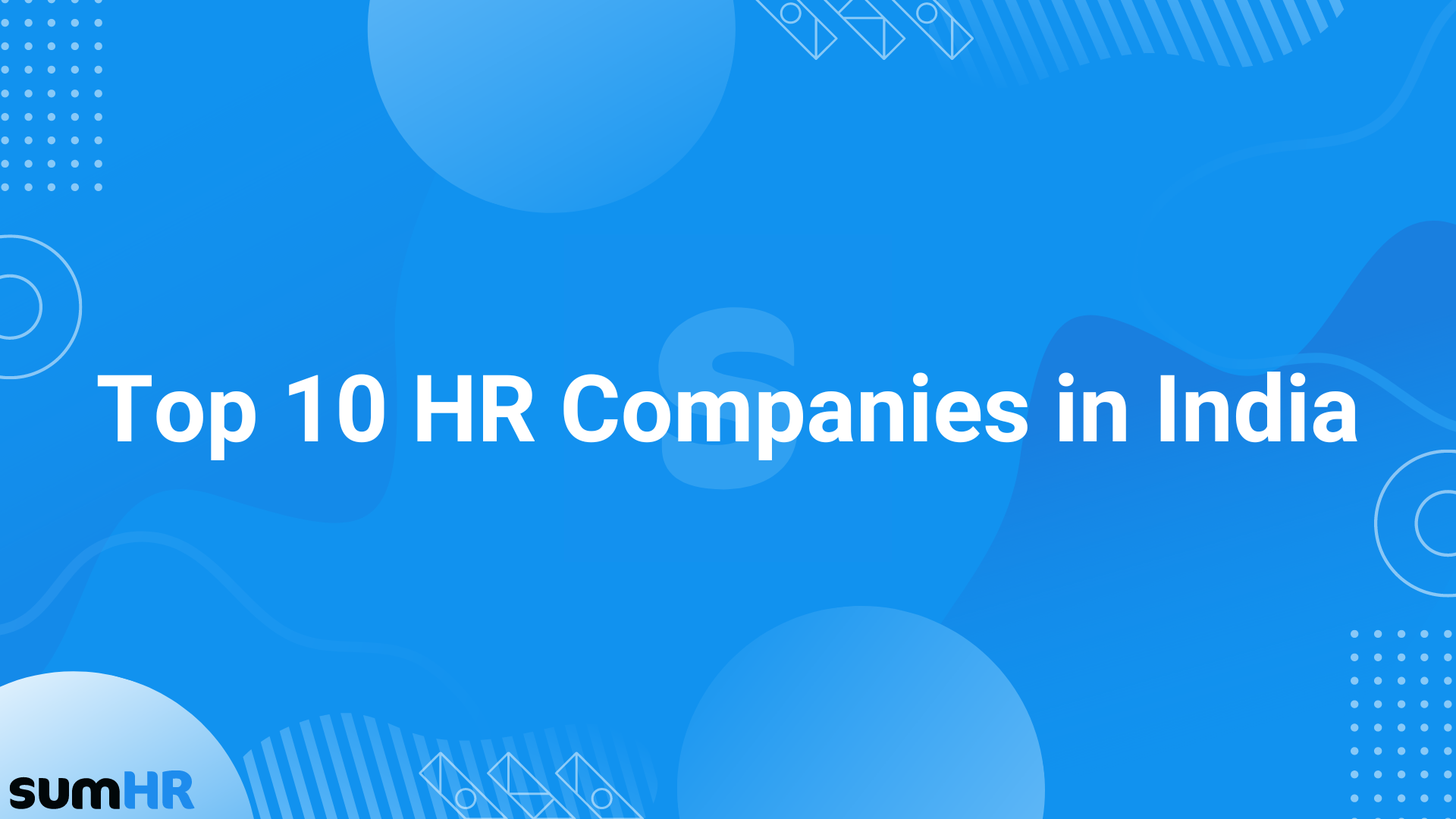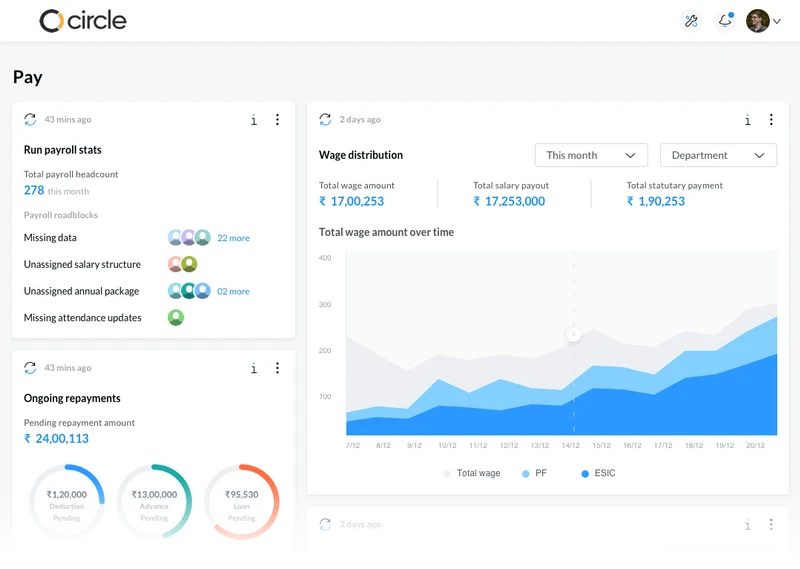1. What Are Human Resources?
A company’s human resources department finds, vetting, employs and educates potential employees. It also manages employee benefit plans. In the twenty-first century, human resources play a critical role in assisting businesses in dealing with new-age techniques, a rapidly changing business climate and a greater need for quality people.
No matter the company’s size, having an HR department is essential. This is because it increases employee productivity and harmony with legal guidelines, safeguarding the organisation from any people-related problems that may develop in the workplace.
2. Human Resources Significance In A Business
Employees are the bedrock of every successful organisation, which is why human resource management (HRM) is highly important. The HR department ensures that employees feel protected, appreciated, and supported. Excellent human resource management ensures the HR department runs smoothly with strategic management and stays updated with the latest technology. The HR department assists in managing the company’s risk. Most human resource managers are well-versed in corporate law, ethics, statistics, conflict management and problem-solving, offering advice when solicited.
3. What is the role of an HR manager in Company?
By managing your company’s most precious asset – its personnel – an efficient human resources (HR) management department may assist in organisational culture, structure, and the capacity to satisfy business functions and demands. The HR function comprises several specialities. Human resource managers in smaller firms may handle more than one of the five major duties: employee remuneration and benefits, training and development, compliance, and workplace safety.
4. Job Summary of an HR manager
- Be able to create and implement policies that support your employer’s business objectives after having a good grasp of them.
- Create job advertisements, person specs, and job descriptions.
- Examine application forms, make a short list, conduct interviews, choose the winning applicant or candidates, and notify the failed candidates.
- Plan and occasionally execute training, including new staff inductions, to ensure that the correct people are hired, developed and retained at the organisation.
- Advise on salary and other perks and deal with administration-centred operations and staff welfare
- Handle redundancy programmes and conduct salary reviews
- Implement planning and strategy-related tasks and create plans to fulfil current and future staffing needs
- Create and put into effect policies for things like working conditions, performance management, equal opportunity, disciplinary actions, and absence management.

Also Read: What is HR Software?
5. What Are an HR Manager’s Responsibilities?
- Develop and implement HR initiatives and strategies consistent with the overall company plan.
- Strengthen management-employee relationships by responding to requests, grievances, human resource planning or other difficulties.
- Have complete control over the employment process.x
- Meet current and future corporate expectations through developing, engaging employee motivation and retaining human capital.
- Create a positive work environment with workplace policies.
- Maintain the perks and payment schedules.
- Examine and monitor the training needs for a programme.
- Maintain legal compliance at all times when handling human resources.
6. How to Become an HR Manager
The initial requirement for any degree or programme in human resources is completing an HRM diploma. You can even seek a bachelor’s in business administration degree. After passing an admission test, you can enrol in a dual-degree programme, such as MBA. You should try your knowledge and skills in an internship or part-time job when out of college. After gaining relevant experience, apply for jobs in the HR field to ultimately become an HR manager.
7. What Important Courses And Training Are Necessary For HR?
Being an HR manager requires constant learning and development. You could learn a lot about the industry by enrolling in certification programmes. Given the rising need for HR managers in the industry, enrolling in the specialised leadership and management courses online by Emeritus India will give you a great opportunity to further your HR management career.
8. Job Description & Templates
The job description templates for an HR manager below are simple to adapt for your business and are designed for publishing on internet job boards or careers portals. A job description template makes it easier to communicate requirements for the position and recruit qualified candidates for the HR department.
A. Recruiter
“We are looking for a highly driven recruiter. In our search for the smartest and brightest employees, you will be the first layer to create recruitment objectives and goals for company culture, along with the following responsibilities.
- Find the best individuals by scanning resume databases.
- Write and edit job descriptions.
- Examine applications to see if candidates fulfil the demands of the role.
- Conduct interviews with applicants using the right techniques and framework.
- Create a weekly report for the tasks that have been finished or are currently being worked on.”
B. Executive Recruiter
“We are seeking a seasoned Executive Recruiter. You will assist in sourcing people with high potential and guiding them to successful placements, along with the following duties.
- Develop candidate personas, write job descriptions, and scout and document applicants as needed.
- Examine applicants’ backgrounds, goals, and personalities.
- Conduct interviews and submit the results and shortlists to the Hiring Manager.
- Make suggestions for improving the recruitment of manpower in the organisation.
- Find new clients for the agency while maintaining current ones.”
Also Read: A guide on Payroll Software in India
9. 5 Interview Questions You Must Ask
Here are the top 5 interview questions and sample responses you might ask during the initial round of the recruiting process.
- What made you submit an application for this job? / Why did you apply for this job?
- What work experience required by this role do you have?
- Tell me about your previous experience.
- What spoke the most to you about the job description?
- What is your reason for quitting your present job? / What is your reason for leaving your prior job?
10. When And How to Recruit HR Manager For Your Business
There is no clear answer to the question of when a company should recruit an HR manager. The window might change based on the sector, payroll, growth pace, leave tracking, monitoring, strategic planning, and company workload. Instead, use these clues to determine when hiring a specialised HR professional is appropriate.
a. When business jobs grow more specialised.
The overall organisation of your company is one clue of when you might require a professional HR manager. As a company grows, its employees frequently transition from general jobs focused on required activities to more specialised roles and tightly focused divisions. As a result of this transformation, it makes sense to establish an HR department.
According to Doug Coffey, a human resources specialist and assistant teaching professor at the Rutgers School of Management and Labor Relations, this is the most important cue.
b. When the company reaches a specific number of employees.
A company can also determine a company’s requirement for an HR manager by achieving a certain number of employees, such as 50 or 100. The reason for this is companies with fewer employees may handle specific HR operations on their own. However, this becomes difficult as the number of employees increases.
c. When prioritising revenue above HR duties might improve bottom-line results.
Tracking the time you spend on HR-related chores and considering if it would be preferable to use that time to expand the business are two more ways to decide whether you may benefit from a full-time HR professional. When managing HR operations demands too much of a business owner’s time, it may be time to add a dedicated HR manager to the team.
Also Read: Maternity Leave in IndiaConclusion
sumHR is on a mission to increase the influence of HR teams in enterprises throughout the world. SumHR is creating a versatile and adaptable end-to-end HRMS with our full-suite HR platform on the cloud to enable HR professionals to automate repetitive tasks, simplify the chaos, and improve the employee’s HR experience. We feel that human resources are the most crucial department in every business. It binds things and people together and handles numerous human variations, yet it frequently lacks the necessary instruments to fulfil its full potential and offer excellent outcomes.
It’s high time to direct the people who are responsible for giving direction to everyone else.
Throw spreadsheets, files, pens, and emails away. The comprehensive HR software is here!
While HR is a vast arena, often there are issues that are addressed by the HR that do not seem documented in their job profile, yet very critical to their portfolio.
Roles like advisory, facilitator, spokesperson, welfare, organizational development, counsellor and motivator come in the purview of an HR profile. The seamless transitions that we see the HR performing are intertwined with handling the employee aspect of the organizational requirements.
FAQs
How does an HR manager qualify as an advisory?
How would you classify an HR's role in an organization?
The HR department in an organization has a variety of responsibilities that can be grouped into four categories: administrative, operational, strategic, and people-centric.
- Administrative tasks include maintaining employee records and ensuring that legal requirements are met. Operational tasks involve managing day-to-day HR operations, such as hiring and onboarding new employees.
- Strategic responsibilities include developing long-term HR plans that align with the organization's goals and objectives. Lastly, the people-centric role involves promoting a positive workplace culture, employee engagement, and overall well-being.
Each of these roles is essential to creating a supportive and effective HR function within the organization, which ultimately contributes to the success of the business and the happiness of its employees.








